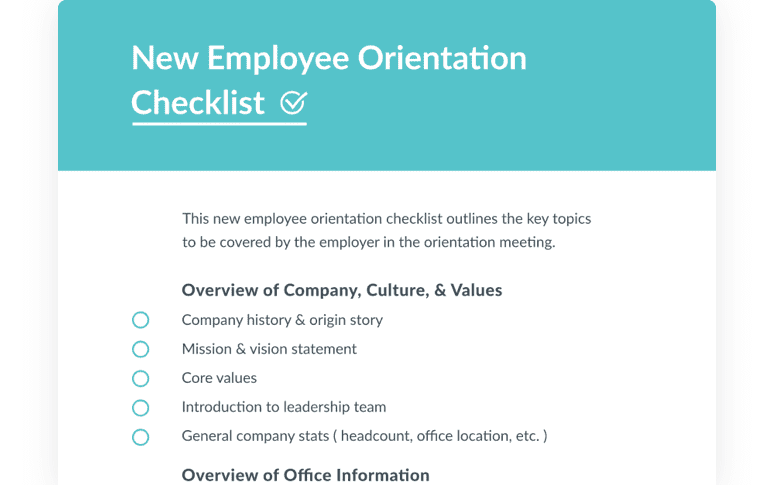Company Culture and the Onboarding Process

Developing and maintaining company culture is a top priority for many businesses in today's global marketplace. In fact, according to a SHRM article, a growing number of companies have even gone as far as to hire a Chief Culture Officer (CCO) and task them with building, managing, and merging culture throughout all departments and processes of their organization.
But while most businesses would welcome and appreciate the addition of an experienced CCO to their team, not every organization has the means to bring one onboard; leaving HR teams responsible for handling the bulk of company culture implementation duties.
In this article, we'll explore why establishing company culture during the onboarding process is so crucial and three keys HR teams can use to do it more successfully.
Social Intranet Software that Encourages Employee Communication

Why Company Culture Matters
Charles A O'Reilly III, a professor of management at Stanford Graduate School of Business, believes that company culture has a major effect on employee attitudes and adaptability. He notes:
"When managers think about culture in organizations, they should be sensitive to the fact that what they're really trying to do is create norms and expectations among employees around this notion of adaptability, and to make sure those norms are widely shared."
Employee adaptability leads to increased organizational adaptability, a hallmark of progressive organizations and a prerequisite for sustainable business growth.
The Importance of Establishing Culture While Onboarding
Operating on the front lines of an organization, the HR department orchestrates a new hire's initial introduction to a company. Successful onboarding creates an essential bridge between the employee recruitment and selection process, and the performance recognition and management of a new employee. Therefore, the onboarding process is the biosphere in which you cultivate and nurture company culture.
3 Keys to Onboarding for CultureIn order to ensure that new hires will fit in and contribute to your company culture in a positive way, a strong onboarding process is necessary. LinkedIn's "2015 Global Recruiting Trends" revealed that employers must take steps to establish a "talent brand" in much the same way that they establish a corporate brand.
Your talent brand is defined by how your employees feel, think, and talk about working for your company, much as your corporate brand is defined by the way customers feel, think, and talk about your company.
Effective onboarding establishes a strong talent brand and enhances your company culture. Here are some tips for onboarding for culture:

1) Ensure that all communications with a new hire accurately convey your company culture.
Communication with a new hire must commence in earnest as soon as he or she accepts a position with your company. In many cases, there is a lag time between acceptance and availability, as new hires work out a notice at an old position.
Use this time wisely by maintaining communication. Get others in on the act, including the CEO, if possible, the manager or department head who will be working with the new hire, and the HR staff. If a new hire is familiar with the people with whom he or she will be working, the first day of employment will be less stressful for all involved.
2) Handle compliance issues before the first day, if possible.
If a new hire is expected to hit the ground running on their first day, give them the best possible chance at success by providing online access to standard employee materials with a comprehensive HR software solution.
This gives a new hire time to study important things like your employee handbook, your benefits package, and other necessary paperwork. It also helps a new hire get a feel for your culture, and eliminates a slew of questions he or she may have about how your operation really works.
Finally, by allowing new hires to fill out their I-9 documents inside an e-verify synced HR software system, you'll ensure complete compliance with all federal hiring laws and better allow your new employee to do what you hired them to do: use their skills to help propel your company forward.
3) Endorse your company culture at every opportunity.
Within the first 90 days of employment, it's likely that a new hire will have many questions about the inner workings of your organization. Regularly scheduling time to talk with new employees as they are being onboarded will provide a wonderful opportunity for answering these questions and providing feedback, if appropriate.
Nurturing new employees as they find their way in your company will also contribute to a culture of adaptability, responsibility, and productivity. Speaking positively about your organization and the experience your employees have while working for you, will help further promote a positive culture in the workplace.
Bringing It All Together
From the moment a new hire accepts a position with your company, begin integrating them into your company culture as quickly and seamlessly as possible. Keep the lines of communication open, showing the new employee how and where he or she fits into your organization. Speak positively, lead by example and when you see good work, acknowledge it.
Moving forward, consider using a comprehensive software solution like HR Cloud's Onboard, that gives human resource departments the ability to streamline communication, ensure compliance and promote your company culture with every new employee. Request your free Onboard demo today!
Want more? Check out these articles about HR today.
HR Cloud is a leading developer of HR software & HRMS solutions for small and medium size businesses that have high turnover. HR Cloud's Onboard is market leading technology for effective new hire onboarding and Workmates enables employee engagement simply and easily. Founded in 2012, our HRIS empowers teams to easily onboard new hires, manage employee data, create a company social network and support employee development.
Keep Reading
The Influence of Pets and Animals on Employee Engagement
In today’s constantly evolving workplace, companies are always looking for new ways to
Remote Onboarding: Creating Engaging Training Videos For New Hires
Remote work is becoming the standard for many companies, and onboarding new employees

